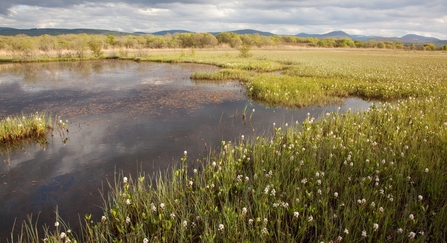Today the English and Welsh Governments announce a consultation on ending the sale of peat to amateur gardeners. But ambition to protect peatlands is still falling far short of what is badly needed.
For decades the UK Government has failed to bring to a clear end the commercial extraction of peat and its sale to gardeners and the horticulture industry. In 2010 a voluntary target was set to phase out the use of peat by amateur gardeners by 2020. Today, peat still accounts for a significant volume of the growing media sold by retailers and, despite its initial aspirations, the voluntary targets set by the Government have been unsuccessful in changing the industry.



